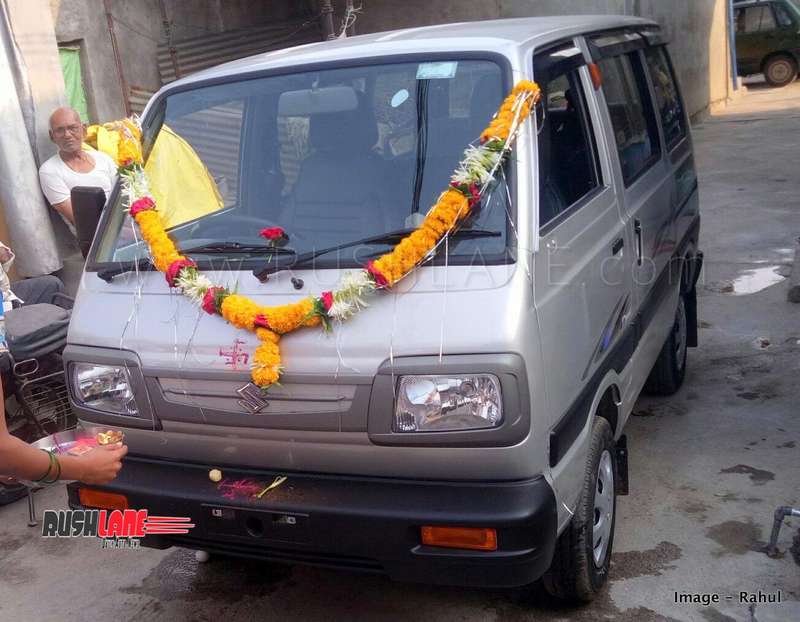Following 35 years of uninterrupted production, Maruti Omni will soon be discontinued. Production will stop sometime this year, ahead of new Bharat New Vehicles Safety Assessment Program (BNVSAP) coming into effect.
Maruti Omni cannot be made to comply with these safety norms which are the primary reason for it being discontinued while other models such as Maruti Eeco and Alto 800 are being developed to comply with these safety regulations. Those cars which do not meet safety standards, will be discontinued.

New safety norms, as indicated by the Government of India, make it necessary to have driver airbag, speed warning system and seat belt reminder along with rear parking sensors as standard will come in from July 2019. The Maruti Suzuki Omni lacks structural integrity to comply with new crash norms and the model cannot be fitted with crumple zones to absorb impact in the event of a collision, due to its structure.
Maruti Omni will be replaced by a bigger and fresher Eeco, which is a similar vehicle and which has been noted for its increased sales. The 5 seater Omni sells an average of 7,000 units per month and could cause an impact on the company sales as not every customer will opt for the Eeco, primarily due to the difference in price.

The Omni is priced from Rs.2.85 lakhs while the base Eeco carries a price tag of Rs.3.37 lakhs. The Omni was a favored vehicle especially among customers with larger families. It was ideally suited for conducting smaller businesses. It was a perfect vehicle for fleet taxis in Tier II cities and also as ambulances.
Maruti Suzuki Eeco is priced from Rs. 3.65 – 4.79 lakhs. It is available in 5 variants and 5 color options and is larger than the Omni, and also has a more powerful engine. The Eeco gets 5 seat, 7 seat and cargo configurations and is powered by a 1.2 liter, 4 cylinder engine offering 73 bhp power and 101 Nm torque.
The engine gets mated to a 5 speed manual gearbox sending power to rear wheels. The Maruti Suzuki Eeco is also available with a CNG Petrol dual fuel variant and complies with upcoming BNVSAP norms while upgrades to the structure will allow the Eeco to meet even stricter safety norms.

